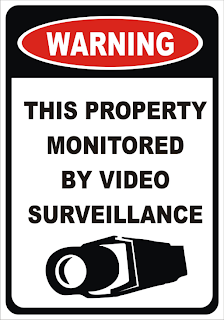Now that the mad rush and excitement from
holiday shopping and boxing week sales is coming to an end, you can start
planning for the New Year, and unfortunately, accounts in arrears.
With consumer debt reaching new highs each holiday season, its no wonder that accounts go into arrears. There are some steps you can take to avoid this situation, both before and after accounts become overdue.
 Evaluate your credit process. Though it may be tempting to offer credit to
all customers in an attempt to boost sales, this may results in higher risk for
losses for your business. Consider
implementing a credit check and reference check before approving the credit
limit for each customer.
Evaluate your credit process. Though it may be tempting to offer credit to
all customers in an attempt to boost sales, this may results in higher risk for
losses for your business. Consider
implementing a credit check and reference check before approving the credit
limit for each customer.
Keep account information up-to-date. Especially with
returning customers, it is important to keep the mailing address and contact
phone number up-to-date. In order to
contact customers about their account, you need to have the right information!
Be timely. If an account
does go into arrears, contact you customer without delay.
Contact by phone. The sooner you make contact,
the sooner you will receive payment.
Contact your customer by phone as well as by mail – mail will often be ignored, so its best to contact through both mediums.
Implement flexible payment
schedules. If you have a customer who is constantly
bouncing payments, contact them to find out why. Is the payment scheduled to be withdrawn a
day or two before payday? Consider
altering the preauthorized payment to work well with your customer’s pay
schedule.
Work with your
customers. If
your customer is having a hard time paying off their debt, consider building a
strategy with them to assist in making payments. Negotiate the terms of your contract or
arrange for an alternative billing cycle.
Its better to work with your client to receive some of the payment
rather than writing the entire payment in full.
Encourage prompt or early
payment. Consider
implementing payment terms that offer discounts to payments made prior to the
due date or accrue interest on late payments.
Identify issues
immediately.
If your customer has an issue with your product or service, it may
affect payment. Identify these problems
as soon as possible and find a viable solution.
A positive customer service experience will create a loyal customer who
pays on time!
Send out a reminder. For large
invoices, consider sending out a reminder of the payment due date. This will keep the payment top of mind while
also giving your customer extra time to prepare.
Bring in an expert. If you are unable
to locate a customer, skip tracing services will help you locate the customer
and their contact information.
If you are unable to locate a customer, skip tracing services will
help you locate the customer and their contact information.
Our skip tracing service is a fast and cost effective debtor and missing person tracing solution. Our tracing service enables you to re-establish contact with your customers by identifying a forwarding address for your customer.
The Renwick Group is Canada’s leading Private Investigation Company specializing in Skip Tracing – we locate hidden assets, people, missing autos & boats, witnesses, beneficiaries, property and missing persons.
We will search and locate anyone. Our success rate is over 90%.
Contact us for more information.
Our skip tracing service is a fast and cost effective debtor and missing person tracing solution. Our tracing service enables you to re-establish contact with your customers by identifying a forwarding address for your customer.
The Renwick Group is Canada’s leading Private Investigation Company specializing in Skip Tracing – we locate hidden assets, people, missing autos & boats, witnesses, beneficiaries, property and missing persons.
We will search and locate anyone. Our success rate is over 90%.
Contact us for more information.









